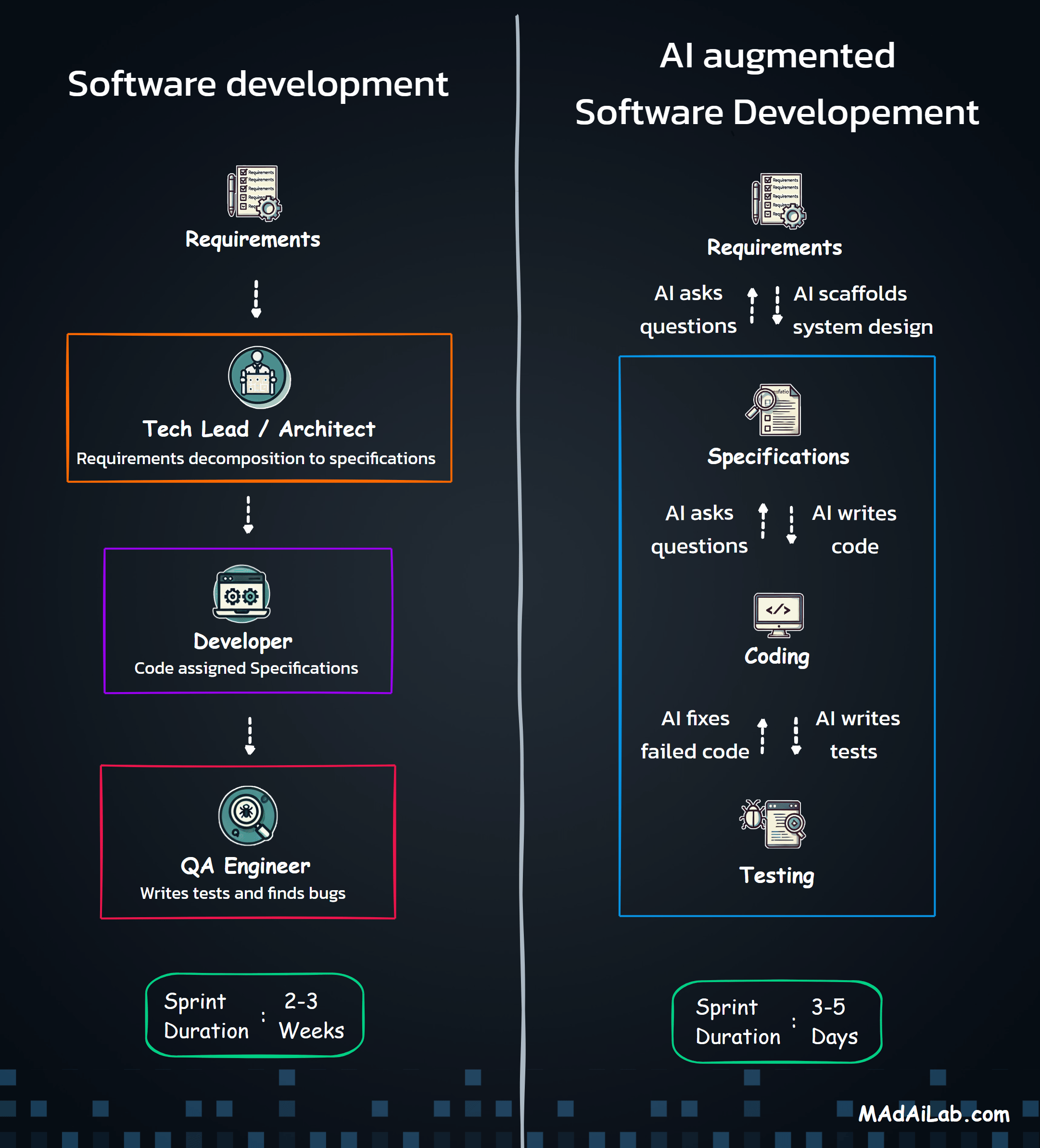Table of Content
📈 Sales & Marketing: The End of CRM Grunt Work?
🏢 Workplace Collaboration: Memory as a Service?
🧠 Social Memory on Demand: No More “Sorry, Have We Met?”
⚖️ The Big Questions: A Researcher’s Playground
About the Author
What Jony Ive and Sam Altman’s New Device Means for Business, Work, and Trust
io: A wearable AI that sees, hears, and remembers—revolutionizing productivity, relationships, and the ethics of workplace surveillance.

Jony Ive, the legendary designer behind Apple’s most iconic products, and Sam Altman, OpenAI’s CEO, are reportedly “cooking” up something big—a wearable device that can see, hear, and remember everything you do. Not just a fancy pair of glasses or another smartwatch, but a personal AI-enabled recorder and assistant that promises to digitize memory and streamline the interface between humans and machines.
Their ambition? To build millions of these devices. Their assumption? There’s a massive market for them. And they might be right.
Such a device could change how we interact with technology, with each other, and with organizations. But it will also challenge core social norms, especially around privacy, trust, and autonomy. For business school researchers and organizational thinkers, this is an intellectual jackpot—ushering in a wave of new questions, case studies, and experiments.
Let’s unpack what’s at stake.
📈 Sales & Marketing: The End of CRM Grunt Work?
Salespeople are known for their charm, persuasion, and hustle—but not for their love of admin tasks. Customer Relationship Management (CRM) systems, while essential, are often treated as burdensome. Sales reps routinely delay logging interactions, rely on memory, or skip entries entirely. This creates data gaps that frustrate managers, misinform teams, and reduce the effectiveness of sales analytics.
Now imagine a wearable device that listens to every client interaction, automatically summarizes key points, logs them into the CRM, and even triggers follow-ups. Salespeople no longer need to scribble notes or remember what happened in last week’s call—it's all stored, structured, and searchable.
Instant productivity boost.
But here comes the tension—one that’s ripe for research: Even if local laws allow one-party consent recording, how would a prospective client feel knowing everything they say is being recorded by an invisible assistant?
Trust is the currency of sales. Legal compliance may not protect against reputational damage or relational harm. Would companies be wise to adopt such devices? Should they give clients an opt-in option? Or does disclosing the presence of the device kill the flow of a conversation altogether?
These are not just legal questions. They’re strategic, ethical, and emotional—and they're perfect for deep business inquiry.
🏢 Workplace Collaboration: Memory as a Service?
In fast-moving organizations, contention over “who said what” or “what was agreed upon” is practically a daily occurrence. A device that captures all conversations—meetings, Slack huddles, even hallway chats—and turns them into structured knowledge could be transformative.
Suddenly, meeting minutes write themselves. Confusion over requirements fades. New employees can review a project’s full history in hours, not weeks. Organizational memory becomes a service, not a liability.
But again, the tension rises: If everyone is being recorded, all the time, what happens to informal collaboration? Spontaneous brainstorming? Dissent? Will employees censor themselves? Will risky ideas be left unsaid?
There’s a paradox here: The very thing that enhances organizational memory may corrode its creative core.
Researchers will be keen to study how these devices affect psychological safety, team dynamics, and communication patterns. Does radical transparency foster a culture of accountability—or surveillance?
🧠 Social Memory on Demand: No More “Sorry, Have We Met?”
Picture this: You're at a conference, a bar, or maybe in line at a café. You strike up a conversation with someone—interesting chat, maybe even exchange contact info. But life moves on. Weeks or months later, you bump into them again. They remember your name, your shared topic of conversation… and you’re drawing a blank.
We’ve all been there.
Now imagine you're wearing a discreet device—let’s call it “io"—that’s been silently capturing your interactions. The moment this person walks up to you, io subtly alerts you:
“Name: Itachi Uchihai. Met: NYC Tech Summit, April 2025. Works on AI and drones. Duration: 14 minutes.”
Just like that, the awkwardness is gone. You're re-anchored in context. A passing encounter becomes a sustained relationship.
For busy professionals, journalists, politicians, healthcare workers, baristas—anyone who meets dozens of new faces every week—this is game-changing.
We often talk about "social capital" as something that’s built through repeated, meaningful interactions. But what if your device could help track and nurture that capital? Instead of connections fading into oblivion, they become part of a living, searchable social memory. You could reconnect with a donor you met at a fundraiser last year, recall a barista’s name and favorite podcast, or pick up a lead that was once just a casual conversation on a plane.
But once again, here comes the tension:
Is it ethical to “remember” someone better than they remember you—especially with the help of a machine? Should people be notified that their conversations might be stored? What counts as a casual chat versus a record-worthy encounter?
And from a product design perspective, what’s the right balance between useful memory and creepy surveillance?
Researchers in human-computer interaction, ethics, behavioral economics, and even sociology will have a field day dissecting these questions. What does “authentic connection” mean when your memory is outsourced? How will these tools affect first impressions, networking norms, or even dating?
In a world where attention is fragmented and memory is overburdened, a wearable AI that acts as a “second brain” could unlock immense social value—while raising profound questions about autonomy, authenticity, and consent.
Would you wear a memory device to remember strangers?
More importantly: Would you expect others to wear one too?
⚖️ The Big Questions: A Researcher’s Playground
The rollout of such memory-enhancing devices opens up an entire landscape of research opportunities:
1. Productivity vs. Privacy
Can we quantify the productivity gains these devices offer? And at what psychological or cultural cost?
2. Power and Consent
Who gets to record whom? Do executives wear them but frontline staff can't? What rights do individuals have over their recorded data?
3. Policy and Organizational Ethics
Should companies define “recording zones” or mandate employee consent? How do you write an ethical AI-capture policy?
4. Cultural and Global Norms
Will Western companies adopt these faster than Asian or European firms with different norms around surveillance and hierarchy? How do local legal frameworks affect adoption?
5. The Innovation Trade-Off
Do these tools improve clarity but kill serendipity? How do you preserve the messy, creative parts of work while formalizing everything else?
#FutureOfTech #AIWearables #SmartAssistant #AIandEthics
About the Author
Dr. Rohit Aggarwal is a professor, AI researcher and practitioner. His research focuses on two complementary themes: how AI can augment human decision-making by improving learning, skill development, and productivity, and how humans can augment AI by embedding tacit knowledge and contextual insight to make systems more transparent, explainable, and aligned with human preferences. He has done AI consulting for many startups, SMEs and public listed companies. He has helped many companies integrate AI-based workflow automations across functional units, and developed conversational AI interfaces that enable users to interact with systems through natural dialogue.
You may also like






